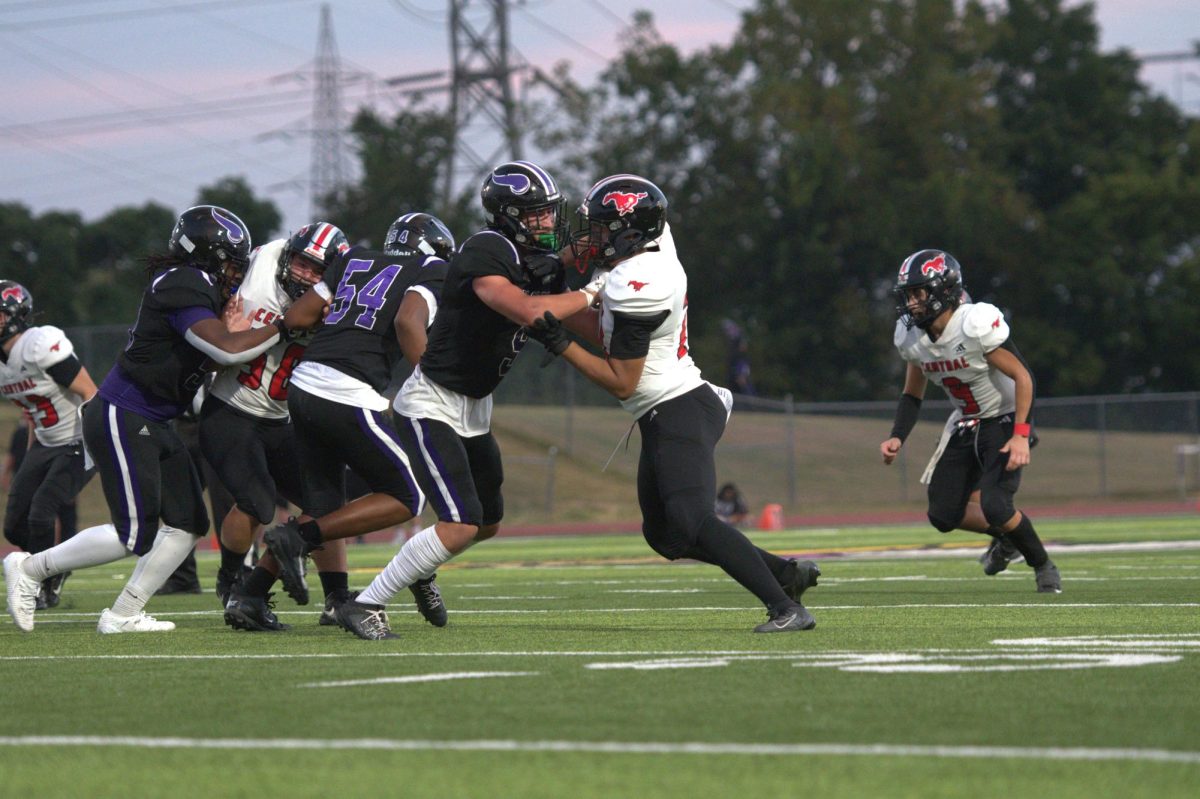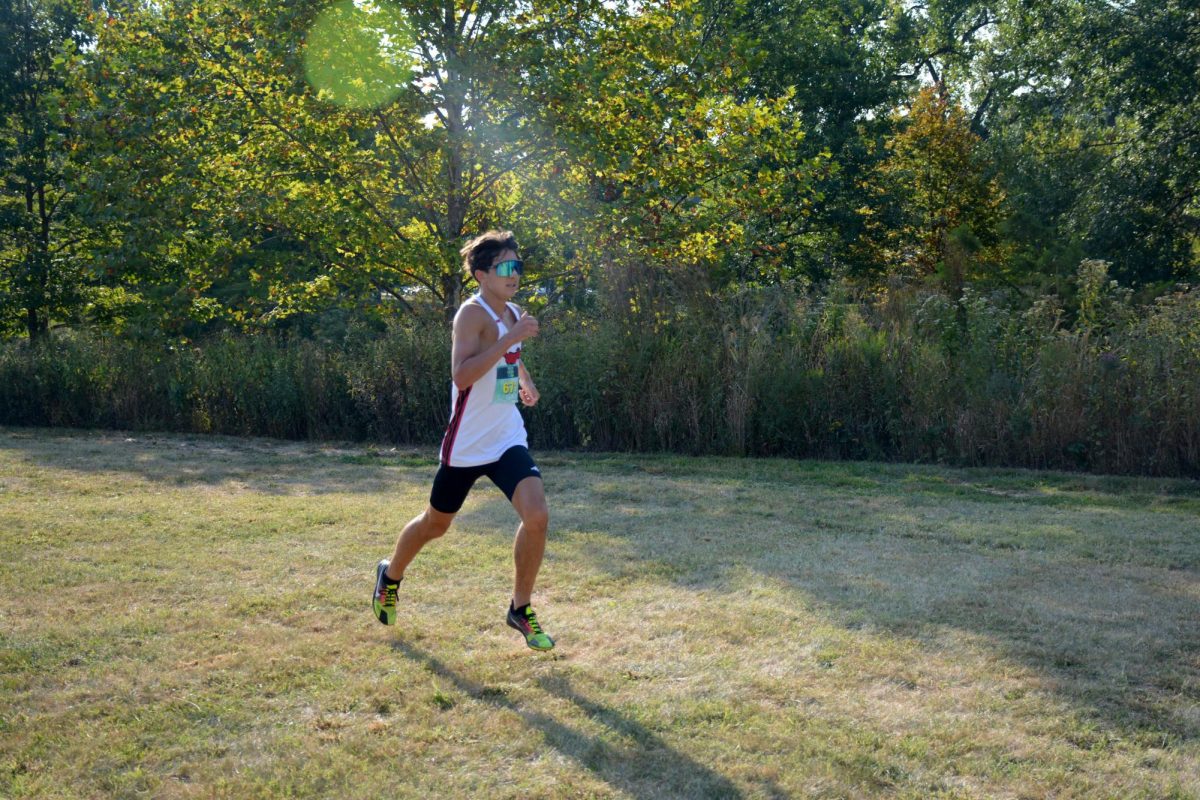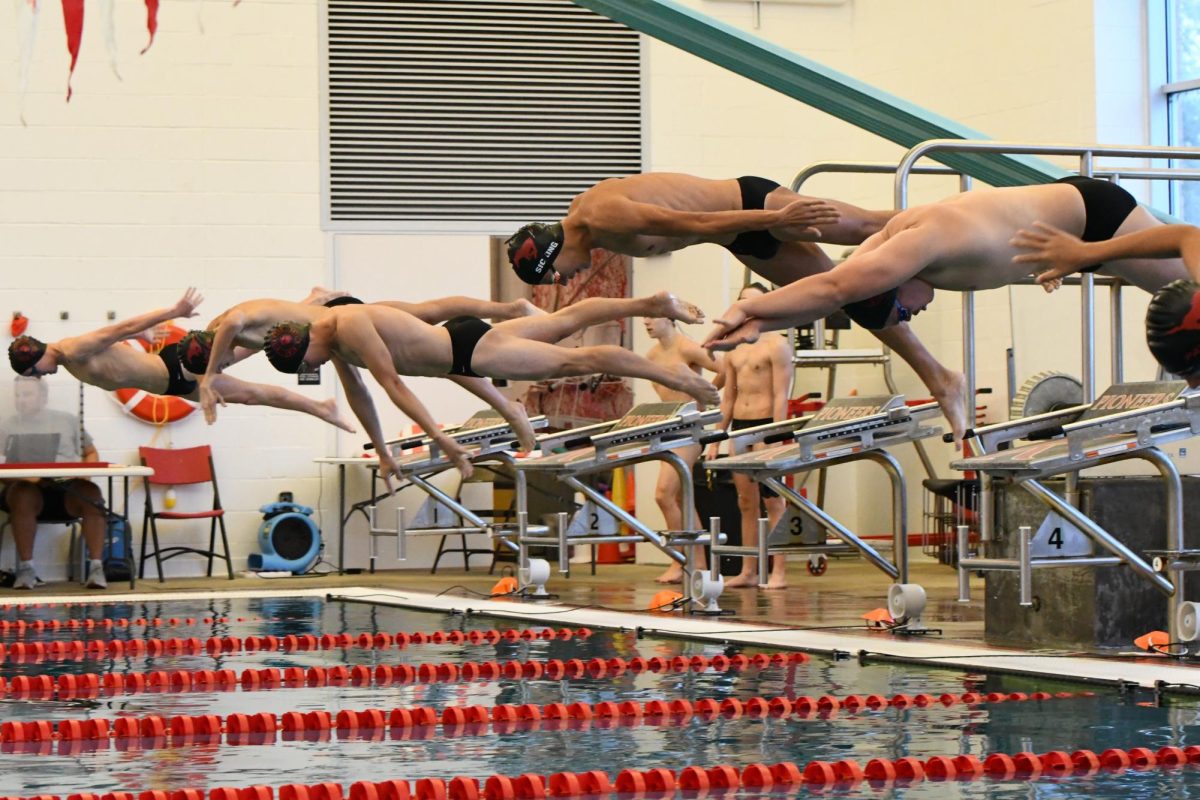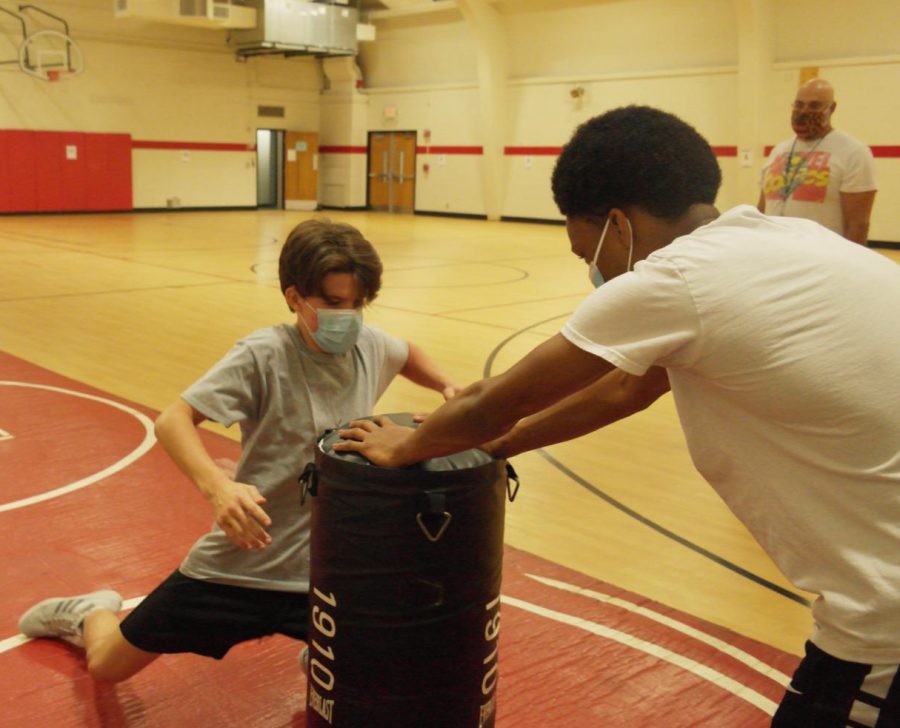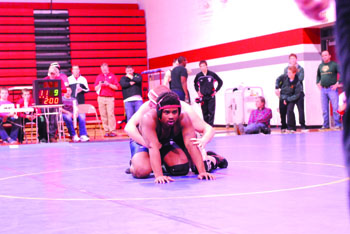Counting calories, daily workouts, and constant concern about their weight, size and BMI is a constant struggle for some high school wrestlers.
Wrestlers often go to extremes in order to keep off the weight, so they can stay in a specific weight category, and this habit can have lifelong risks.
“Weight plays a pretty big role. It really determines who you are going to wrestle against and it can play a big factor in basically how well you are going to do,” junior Luke Voeller said. The worst thing I’ve had to do was while getting ready for a spring tournament. I hadn’t dieted all week to get ready and had to go from 145 to 138 in one day. I didn’t eat, barely drank water, and ran a ton with sweatpants on.”
Many students work to lose or gain weight if they need to fill a gap for a team in a weight class. Wrestling is a year-long commitment which means for most wrestlers they have to keep their weight front and center in their minds even on the off-season. Students have to miss out on luxuries that most of us take for granted, such as birthday cake or even school lunches because they have to stick to strict diets.
“During high school most kids are growing quite a bit, and if you don’t have enough food for energy you can’t really grow or think that much,” Voeller said. “I always think about how it’s affecting my body.”
For senior John Kim, the extreme dieting had a key role in his not continuing the sport this year.
“I tried to keep up a diet of not eating any carbs, drinking little water — that was the original plan,” senior James Kim, a member of last year’s wrestling team, said. “After three weeks, I started getting cravings. I’d starve myself all week before a meet, and do extra workouts to lose more weight.”
The competitive nature of the sport, mixed with the goal of getting to state, causes the more serious of these student athletes to starve themselves for days before meets in hopes of losing those final few pounds, then binge eating after weigh-ins to get the leg up on the competition.
The main short-term issue with starving themselves before meets is the risk of dehydration.
“Many wrestlers who are dehydrating themselves are going even further past the 2% dehydration marker,” Sports Dietitian for NutriFormance and Athletic Republic St. Louis, Eric Finley said. “Once our bodies start getting more severely dehydrated (around 7% dehydration) it can lead to symptoms including: increased heart rate, dizziness, collapse, organ failure, and sometimes death.”
These health risks often times show through the performances of the athletes. At 2% dehydration, which is when your body just starts feeling thirsty, your performance in strenuous activities is proven to go down by at least 10%. This is the difference between 1st and 2nd place in many cases.
The wrestling coaches, Jeff Bolin and Taylor Bolin — head and assistant coach, respectively — do not condone these extreme dieting measures and promote healthier ways to maintain or lose weight.
“He always just says we need to eat healthy and eat smaller amounts than what we usually eat the week of a tournament,” Voeller said.
Another effect of starving yourself for long periods of time includes loss of nutrients.
“Think of the wrestler’s body as a car: if you don’t put fuel in the car you will hit empty and you won’t be going anywhere,” Finley said. “When we don’t provide food for our bodies we aren’t giving it the fuel it needs to perform.”
This is especially important for students, because without proper nutrients it becomes significantly harder to concentrate in school.
For the long term, starving one’s self may lead to lifelong eating disorders or poor eating habits.
“Trends and habits developed during this stage of life can carry over to adulthood,” Finley said.

